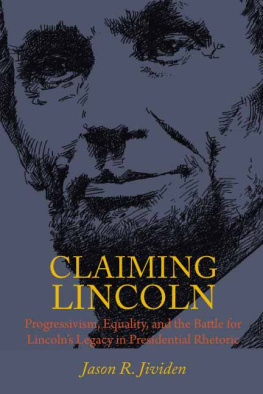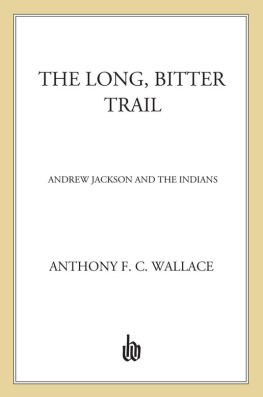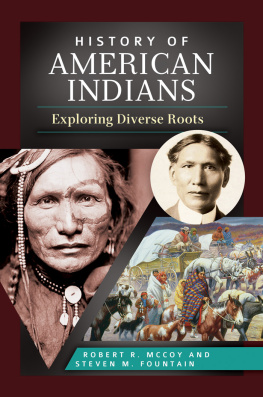www.upress.state.ms.us
The University Press of Mississippi is a member of the Association of American University Presses.
Portions of this work have appeared in altered forms in the following publications.
Jason Edward Black, Rhetorical Circulation, Native Authenticity, and Neocolonial Decay: The Case of Chief Seattles Controversial Elegy, Rhetoric & Public Affairs 15:4 (2012): 63546.
Jason Edward Black, A Clash of Native Space and Institutional Place in a Local Choctaw-Upper Creek Memory SiteDecolonizing Critiques and Scholar-Activist Interventions, American Indian Culture & Research Journal 36:3 (2012): 1944.
Jason Edward Black, Plenary Rhetoric in Indian Country: The Lone Wolf v. Hitchcock Case and the Codification of a Weakened Native America, Advances in the History of Rhetoric 11 (2011): 5980.
Jason Edward Black, Native Resistive Rhetoric and the Decolonization of American Indian Removal Discourse, Quarterly Journal of Speech 95:1 (2009): 6688.
Jason Edward Black, Remembrances of Removal: Native Resistance to Allotment and the Unmasking of Paternal Benevolence, Southern Communication Journal 72:2 (2007): 185203.
Jason Edward Black, Symbolic Suicide as Mortification and Transformation: The Conciliatory (Yet) Resistant Surrender of Maka-tai-mesh-ekia-kiak, Kenneth Burke Journal 2:1 (2005): 114.
Copyright 2015 by University Press of Mississippi
All rights reserved
Manufactured in the United States of America
First printing 2015
Library of Congress Cataloging-in-Publication Data
Black, Jason Edward.
American Indians and the rhetoric of removal and allotment / Jason Edward Black.
pages cm. (Race, rhetoric, and media series) Includes bibliographical references and index.
ISBN 978-1-62846-196-1 (hardback : alkaline paper) ISBN 978-1-62674-485-1 (ebook) 1. Indians of North AmericaGovernment relationsHistory19th century. 2. Indians of North AmericaGovernment relationsHistory20th century. 3. RhetoricPolitical aspectsUnited StatesHistory19th century. 4. RhetoricPolitical aspectsUnited StatesHistory20th century. 5. Indian Removal, 18131903. 6. United States. General Allotment Act (1887). 7. Indians of North AmericaLegal status, laws, etc. 8. DecolonizationUnited StatesHistory. 9. CitizenshipUnited StatesHistory. 10. Indians of North AmericaPolitics and government. I. Title.
E93.B633 2015
323.1197dc23
2014029788
British Library Cataloging-in-Publication Data available
Acknowledgments
THE PROCESS OF COMPLETING THIS BOOK HAS PROVIDED ME WITH AN embarrassment of riches, and the folks recognized below are testaments to the ways that an academic project is neither singularly inspired nor privately written.
To begin, this project has been supported emotionally and psychically by my colleagues, past and present, at the University of Alabama. My department chair Beth S. Bennett has offered incredible professional and personal direction during my time at Alabama, and I am far richer in confidence and ability because of her mentorship. Many of my fellow faculty members have also contributed fulsomely to this project and to my well being as a teacher-scholar. Special thanks are due to Anita Abernathy, Robin Boylorn, Marsha Houston, Mary Meares, Carol Bishop Mills, Mark Nelson, and Matt Payne for listening to my ideas and for providing enduring encouragement every step of the way.
I have been absolutely blessed with brilliant undergraduate and graduate students at the University of Alabama, and I wish to thank them all here for helping to guide the micro-arguments of this project. Students in my classes over the years, especially seminars such as Contemporary Rhetorical Theory; Critical, Cultural, and Rhetorical Theories; Rhetoric of Native America; Rhetoric, Race, and Law; African American Rhetoric; Rhetoric and Social Change; and War and Protest Rhetoric, have genuinely sharpened almost every facet of this volume.
Some students have become close friends, collaborators, and family over the past decade. I want to recognize Justin Combs, Ray Harrison, Adam Sharples, and Jeff Walkerspecificallyfor providing the kind of brotherhood that helped me simultaneously stay grounded and feel comforted. I mean it when I say that our friendship has meant the world to me.
Speaking of family, this book would never have seen the light of day without my academic kin. I am so very grateful to many, but particularly to William Doty, Danielle Endres, Steve Herro, Casey Kelly, James Klumpp, Shawn Parry-Giles, Trevor Parry-Giles, Belinda Stillion-Southard, Bjorn Stillion-Southard, Mary Stuckey, Mari Boor Tonn, Dan Waterman, Marilyn Young, and my Southern States Communication Association, Carolinas Communication Association, and Alabama Communication Association communities. Most of all, I would not be the scholar and person I am today without my mentor and brother Charles E. Morris III, whose love is enduring and whose patience is saintly.
I would like to thank Davis Houck, my colleague and the Race, Rhetoric, and Media series editor at the University Press of Mississippi (UPM), for all his support. He single-handedly breathed new life into this project. Throughout our time chatting about the book, I have found both a fabulous exemplar and good friend in Davis. I also found at UPM one of the best editors with whom I have ever worked. Craig Gill is, hands down, an authors editor. Katie Keene at UPM, too, has been both inspiring and fun to work with on the project. Copy editor Robert Jefferson Norrell sharpened the prose incredibly and taught me much along the way. Thank you, Craig, Katie, and Robert for helping to animate this project.
As I close, I want to thank two more of my families. The first is my NASCAR community, especially Mike and Angela Loveland. For roughly 40 weeks out of the year, whether on Facebook across the miles or in the stands at tracks around the country, you help make life fun. There is no way I could hold it together without my pit crew. Our daily chats and laughs are the stuff that matters and the memories that count.
Finally, I want to acknowledge my personal familymy grandmother, aunts, uncles, cousins, in-laws, and nephews who have helped me to grow as a person. I offer a special heartfelt thank you to my mother and father, Cheryl Black and Martin Black, for all their care and support over the years. I am fortunate beyond words to count in my corner two humble, hardworking, and compassionate people who never relent in their unbridled affection. And, of course, to my heart and soul; my will to meaningJennifer, Anabelle, and Amelia. I love you so very much. I treasure every moment spent together and cherish every moment to come. Thank you for making our home warm, bright, and loving.
American Indians and the Rhetoric of Removal and Allotment









